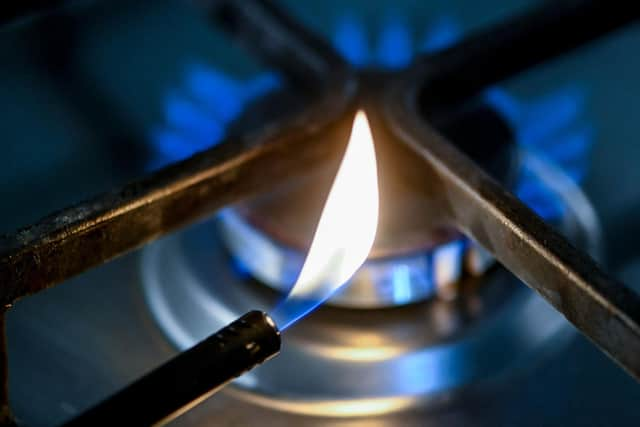Cost of living crisis: Is it illegal not to pay energy bills? Don't Pay UK campaign gathers pace
and live on Freeview channel 276
The wholesale price of gas and the conflict between Russia and Ukraine has been blamed for high costs.
Measures to combat the problem have been introduced by the government.


Advertisement
Hide AdAdvertisement
Hide AdPrime minister Lizz Truss announced a typical household energy bill would be capped at £2,500 annually.
This will be frozen for the next two years.
Some concerns were raised regarding the timing of the policy – after bills had already risen exponentially – and concerns about it not being targeted at the most vulnerable.
A lack of a windfall tax on unexpected energy company profits have also been criticised.
Campaigns such as Don’t Pay UK are gathering momentum.
According to them, over 100,000 are backing the cause, pledging to cancel their energy direct debits on October 1.
This action may lead to some severe consequences.
What do Don’t Pay UK stand for?
Advertisement
Hide AdAdvertisement
Hide AdThe founder of the campaign describes itself as a ‘genuine grassroots movement’.
It is an unfunded collective of unpaid volunteers, aiming to take a stand against the huge increases in energy bills, and the profits that businesses are making.
The October 1 date, where many are set to refuse to pay their energy bills, coincides with Ofgem raising the energy price cap.
Ofgem’s previous cap for those on average use tariffs – paying by direct debit – was £3,549, an 80 per cent rise from the previous figure.
Advertisement
Hide AdAdvertisement
Hide AdApproximately 24 million households are set to be affected by the rise.
Is it illegal not to pay my energy bills?
There are no direct laws which state you can’t refuse to pay your energy bills, but there are consequences to keep in mind.
According to business comparison site Bionic, energy providers do not have the right to take immediate action if you refuse to pay, and begin to rack up debt.
Companies can move customers on to a prepayment meter, which is likely to increase costs.
It requires people to pay for energy as they use it.
Consumers have some rights before any changes are made.
Advertisement
Hide AdAdvertisement
Hide AdA supplier has to give a customer 28 days to repay any debts before making any decisions.
They also cannot enter someone’s home to install a prepayment meter without seven days prior notice.
Before this, energy suppliers are encouraged to contact their customers and offer them a repayment plan, or help to arrange a repayment through their benefits.
Prepayment meters can only be refused if someone cannot physically reach them, or top up a balance at a shop, if hey are disabled, ill, or live remotely, for example.
Advertisement
Hide AdAdvertisement
Hide AdIf someone still refuses to pay their bills after the energy supplier has gone through those steps, they have the right to get a warrant to install a meter, or change a smart meter to a pay-as-you-go setting.
Can a supplier cut someone off for refusing to pay energy bills?
Not paying energy bills will negatively impact credit score.
This makes it harder to borrow money in the future.
Credit reference companies can be notified for non-payment of utility bills.
Suppliers can pass on accounts to debt recovery services, which may lead to a County Court Judgement (CCJ) judgement.
Advertisement
Hide AdAdvertisement
Hide AdEven if debts are repaid, a CCJ can remain on a credit file for six years, making it harder to borrow money.
If a repayment plan with a supplier cannot be settled, and a customer refuses to have a prepayment meter installed without a valid reason, the company can take steps to disconnect someone.
Energy suppliers can do this a customer misses an instalment on a repayment agreement.
In that instance. the household can be shut off after 28 working days.
Advertisement
Hide AdAdvertisement
Hide AdCutting off energy can also happen if someone has not paid after 28 days from the date of their last bill.
Ofgem said suppliers should do everything in their power to avoid disconnecting customers, especially if they are ill or disabled.
Companies cannot shut someone off if they are above state pension age, or live alone, between October and April each year.
Ofgem have issued advice to those who cannot afford their bills, which lists what payments are available to people.
